Out-of-school learning in Romania
While state-run out-of-school programmes are provided for by law, they have yet to be implemented.

Christine Leșcu, 28.09.2016, 14:08
Besides
the excitement and enthusiasm typical of any beginning, the start of a new
school year in Romania is usually accompanied by lots of unresolved things. One
of them has turned into an issue for many parents: where and with whom are
their children going to spend the time after finishing classes and until their
parents come back from work? Some are lucky to benefit from the help of nannies
or grandparents, others resort to after-school programmes. Services provided by
such schools, however, are individual solutions and most of the time cost more
than a family with average incomes can afford.
However,
the education law, adopted in 2011, stipulates in article 58 that all education
institutions in Romania can benefit from an out-of-school learning programme.
According to the law, this public – not private – programme was meant to
provide children with the right space to do their homework, to get additional
help in learning but also with a warm meal, thus helping prevent, among other
things, school-dropout and aiding disadvantaged families. Although everything
looks very good on paper, in reality, this programme and the legal provisions
regulating it have never been implemented.
The
Human Catalyst NGO started a study into how the after-school programme should
be applied in Romania. Here is Laura Marin, the president of this NGO:
In theory, schools are supposed to
conduct a needs analysis to identify what needs to be done to consolidate the
knowledge acquired by children in class when they are out of school. Schools
should then propose a number of activities to be carried after or before
regular school hours. As regards the funding of this programme, both the law
and the implementing regulations mention four sources: the local authorities,
sponsorship, European funds and even the state budget for disadvantaged
children. Parents’ contribution is also mentioned as a possible source.
This
is a means of reducing not just the school dropout rate, but also address other
problems facing disadvantaged families. Laura Marin, from the Human Catalyst
NGO, tells us what these problems are:
In
rural areas the poverty rate is three times higher than in the urban areas and
this leads to a low level of education in the family, improper living and
studying conditions, etc. There are children who live with their parents in
just one room or in a shack, with no electricity, not even a table to do their
homework on or a place to keep their school books. Can you imagine what this
means for a child who has to do homework? The legislation on out-of-school
learning is very good and its drafting involved many experts in education. The
programme is not only about doing your homework in school rather than at home.
It may also include counselling activities with parents, personal development
activities, health education, sports activities and other activities that may
lead to achievements. Anything that is not done in class may be covered by such
out-of-school learning programmes.
According to the studies conducted
by the Human Catalyst NGO, less than 15% of children from disadvantaged
families benefit from additional educational support, and even when it exists,
it is provided by NGOs rather than the state. This is despite the fact that
there are some 300,000 primary and secondary school children in Romania who
study in disadvantaged schools, facing a high risk of school dropout. According
to Eurostat the school dropout rate in Romania stood at 19% in 2015, which is
6% more than the EU average. However, it’s not just poor families and children
that could benefit from the out-of-school programme. Anemari Necsulescu is a
programme director with Habitat for Humanity Romania and has a son in the
fourth grade who would very much need an after-school programme:
We
have been paying a neighbour to pick our son from school every day. However,
she is getting old and he is growing up so it’s become hard for her to keep an
eye on him or help him with his homework. So we had to choose a private
after-school programme with the financial help of the entire family. There are
women, however, who cannot benefit from such help from their extended family,
and are therefore forced to give up their jobs because it’s cheaper than pay
for an after-school programme.
The research conducted by the Human
Catalyst NGO has shown that the state out-of-school programme has not been
implemented mainly for financial reasons. In an attempt to find out the
specific problems, the organisation approached the finance and education
ministries. Laura Marin tells what the answer was:
We
fist got a official letter from the finance ministry saying that while the
regulation on out-of-school programmes is included in the 2011 education law
and the implementing regulations, the education ministry has never requested a
budget to fund the programme. The finance ministry cannot allocate a budget
unless the education ministry makes a request to this end.
After a lot of lobbying and meetings
with the education ministers over the last two years, the representatives of
civil society achieved something. The education ministry says it intends to
include the out-of-school programme into the 2017 state budget for a number of
50 schools. On the basis of an improved methodology, for the 2017 financial
year, more precisely in the second semester of the school year, we will include
in the ministry’s budget money for the implementation of the out-of-school
programme in the 50 schools where children benefit from free meals starting
this autumn, said state secretary Monica Anisie. Other funding resources may
include the EU structural funds, with funding lines for schools at high social and
educational risk.






























